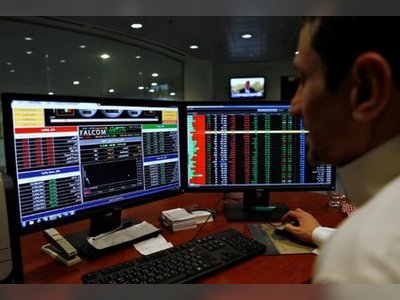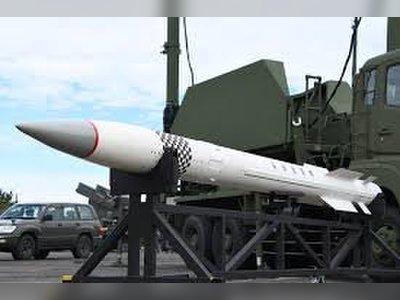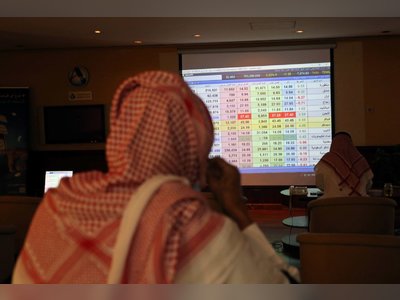
Political Turmoil in Israel Following Netanyahu's Dismissal of Shin Bet Head
Israeli Prime Minister Benjamin Netanyahu's decision to fire Ronen Bar has sparked widespread protests and intensified political divisions.
On March 17, 2025, Israeli Prime Minister Benjamin Netanyahu announced the dismissal of Shin Bet head Ronen Bar, triggering significant political upheaval in the country.
Many observers interpret this move as an attempt by Netanyahu to consolidate decision-making power and remove dissenting voices from his administration.
Israeli public broadcasting authority reported that various groups are planning to protest near the government headquarters in Jerusalem on Wednesday, coinciding with a cabinet meeting scheduled to finalize Bar's dismissal.
In a statement, the president of Tel Aviv University expressed his intention to join the protests and urged other academic and economic leaders to participate.
Opposition leader Yair Lapid criticized Netanyahu's leadership, asserting that the Israeli public has lost trust in the Prime Minister.
He argued that if loss of confidence is grounds for dismissal, then Netanyahu himself should resign, as he has similarly lost public trust.
Lapid condemned Netanyahu's handling of Bar's dismissal as irresponsible, especially in light of ongoing hostage crises, and announced plans to challenge the decision in the Supreme Court.
Former Prime Minister Naftali Bennett echoed Lapid's sentiments, stating that Israel cannot recover unless Netanyahu steps down.
Bennett held that military and intelligence leaders, including Bar and the Minister of Defense, bear responsibility for security failures while accusing Netanyahu of evading responsibility for escalating threats from Hamas and Hezbollah.
Yair Golan, leader of the Democratic Party, accused Netanyahu of fostering an authoritarian regime and likened the current situation to dictatorship, claiming that the government seeks to exercise unrestrained power based on directives from a corrupt leader.
Former Shin Bet head Yaakov Peri remarked that Netanyahu's actions reflect a desire to operate independently without oversight, noting that the Shin Bet leadership is not meant to be under personal loyalty to the Prime Minister.
Industry leaders also voiced their opposition to Bar's dismissal, with the Israeli Business Forum asserting that this internal conflict is detrimental to national security and calling on Netanyahu to refrain from actions that undermine democracy in Israel.
In defense of the Prime Minister, Finance Minister Bezalel Smotrich asserted that Bar's dismissal was overdue, attributing blame for significant security lapses to him.
Smotrich suggested that had Bar focused on actual security threats rather than political maneuvers, the severity of the October 7 incident could have been mitigated.
The circumstances surrounding Bar's dismissal became more complex when it was reported that police had summoned former Shin Bet chief Nadav Argaman for questioning following a complaint from Netanyahu.
Bar has stated that he is not resigning under pressure but is instead willing to continue in his role until specific national security issues, including the return of hostages, are resolved.
Bar's refusal to resign is based on the assertion that his commitment to the state should precede personal loyalty to Netanyahu.
He claimed that Netanyahu's demands contradict the interests of public safety and indicated his intention to remain in the position until all sensitive investigations, likely related to Netanyahu’s office, are concluded.
As protests are expected to escalate, a coalition of opposition leaders, including Lapid and Gantz, has committed to filing a petition with the Supreme Court to contest Bar's removal, alleging that it serves to obstruct ongoing criminal investigations into serious state security crimes linked to Netanyahu.
The situation marks a notable moment in Israeli politics, as allegations of corruption and dissent among the current leadership intensify.
Netanyahu's actions have drawn criticism on legal grounds, raising concerns regarding the process and motives behind the dismissal amid heightened tensions within the national framework.
Many observers interpret this move as an attempt by Netanyahu to consolidate decision-making power and remove dissenting voices from his administration.
Israeli public broadcasting authority reported that various groups are planning to protest near the government headquarters in Jerusalem on Wednesday, coinciding with a cabinet meeting scheduled to finalize Bar's dismissal.
In a statement, the president of Tel Aviv University expressed his intention to join the protests and urged other academic and economic leaders to participate.
Opposition leader Yair Lapid criticized Netanyahu's leadership, asserting that the Israeli public has lost trust in the Prime Minister.
He argued that if loss of confidence is grounds for dismissal, then Netanyahu himself should resign, as he has similarly lost public trust.
Lapid condemned Netanyahu's handling of Bar's dismissal as irresponsible, especially in light of ongoing hostage crises, and announced plans to challenge the decision in the Supreme Court.
Former Prime Minister Naftali Bennett echoed Lapid's sentiments, stating that Israel cannot recover unless Netanyahu steps down.
Bennett held that military and intelligence leaders, including Bar and the Minister of Defense, bear responsibility for security failures while accusing Netanyahu of evading responsibility for escalating threats from Hamas and Hezbollah.
Yair Golan, leader of the Democratic Party, accused Netanyahu of fostering an authoritarian regime and likened the current situation to dictatorship, claiming that the government seeks to exercise unrestrained power based on directives from a corrupt leader.
Former Shin Bet head Yaakov Peri remarked that Netanyahu's actions reflect a desire to operate independently without oversight, noting that the Shin Bet leadership is not meant to be under personal loyalty to the Prime Minister.
Industry leaders also voiced their opposition to Bar's dismissal, with the Israeli Business Forum asserting that this internal conflict is detrimental to national security and calling on Netanyahu to refrain from actions that undermine democracy in Israel.
In defense of the Prime Minister, Finance Minister Bezalel Smotrich asserted that Bar's dismissal was overdue, attributing blame for significant security lapses to him.
Smotrich suggested that had Bar focused on actual security threats rather than political maneuvers, the severity of the October 7 incident could have been mitigated.
The circumstances surrounding Bar's dismissal became more complex when it was reported that police had summoned former Shin Bet chief Nadav Argaman for questioning following a complaint from Netanyahu.
Bar has stated that he is not resigning under pressure but is instead willing to continue in his role until specific national security issues, including the return of hostages, are resolved.
Bar's refusal to resign is based on the assertion that his commitment to the state should precede personal loyalty to Netanyahu.
He claimed that Netanyahu's demands contradict the interests of public safety and indicated his intention to remain in the position until all sensitive investigations, likely related to Netanyahu’s office, are concluded.
As protests are expected to escalate, a coalition of opposition leaders, including Lapid and Gantz, has committed to filing a petition with the Supreme Court to contest Bar's removal, alleging that it serves to obstruct ongoing criminal investigations into serious state security crimes linked to Netanyahu.
The situation marks a notable moment in Israeli politics, as allegations of corruption and dissent among the current leadership intensify.
Netanyahu's actions have drawn criticism on legal grounds, raising concerns regarding the process and motives behind the dismissal amid heightened tensions within the national framework.











